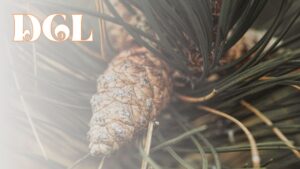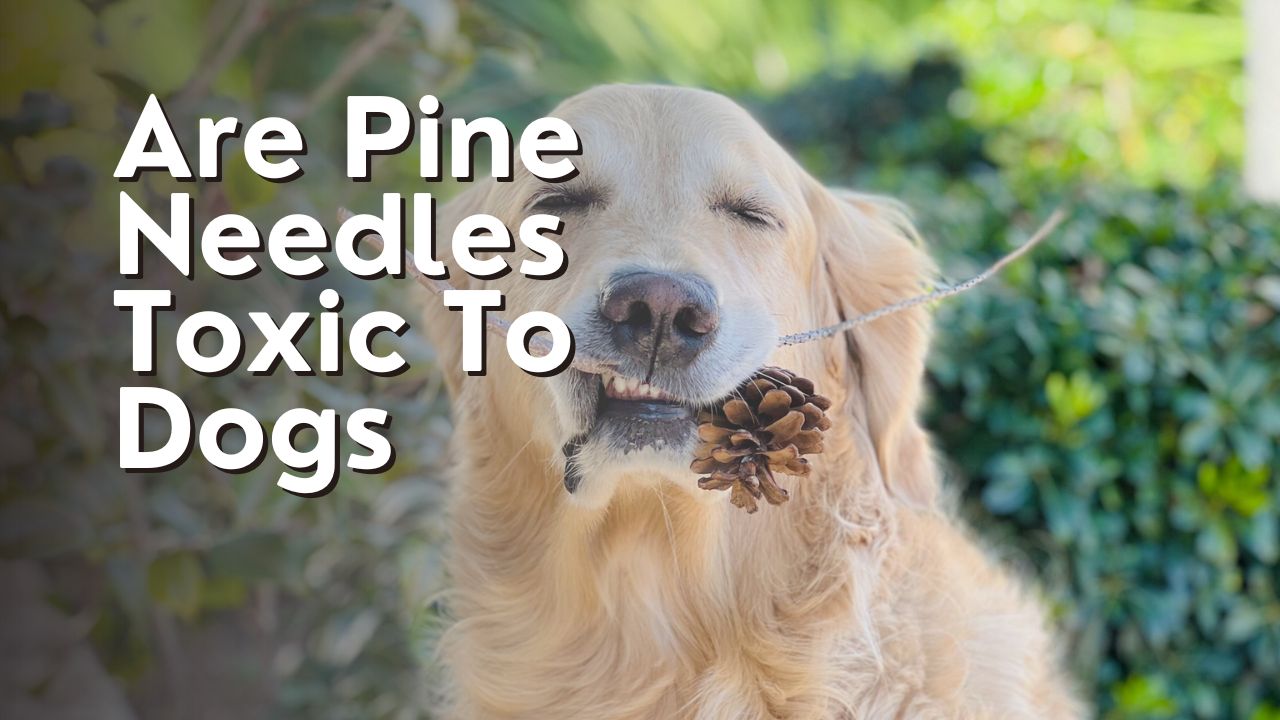Hey there! Have you ever wondered if pine needles are toxic to dogs? Well, I’ve got some answers for you. In this article, we’ll dive into the composition of pine needles and explore the potential risks they pose to our furry friends.
You see, as a dog owner myself, I understand the importance of keeping our pups safe and healthy. That’s why it’s crucial to be aware of any potential dangers lurking in our surroundings. Pine needles might seem harmless, but are they really?
We’ll discuss the signs and symptoms of pine needle consumption in dogs, as well as steps you can take to keep your canine companion out of harm’s way. And fear not, we won’t leave you hanging without alternatives for safe outdoor activities with your dog.
So, let’s get started and learn if those seemingly innocent pine needles could actually pose a threat to our beloved four-legged pals.
Understanding the Composition of Pine Needles
Did you know that the composition of pine needles can be potentially harmful to our furry friends? As a dog owner, it’s important to understand the potential risks associated with pine needles and take necessary precautions to keep our dogs safe.
Pine needles contain certain compounds that can pose a threat to our canine companions. One such compound is an essential oil called alpha-pinene, which gives pine needles their distinct scent. While this oil may be harmless to us, it can cause digestive issues and irritate the mouth and stomach lining of dogs when ingested. In addition, the sharpness of pine needles can damage the delicate tissues of their digestive system, leading to further complications.
It is crucial to prevent our dogs from ingesting pine needles. While some dogs may be naturally inclined to chew on objects, it’s our responsibility to keep them away from potential hazards. Regularly inspecting our yards for fallen pine needles and promptly removing them can greatly reduce the risk of accidental ingestion.
In conclusion, the composition of pine needles can be toxic to dogs due to the presence of harmful compounds. By understanding and taking preventive measures, we can ensure the well-being of our furry friends and keep them safe from the potential dangers associated with pine needles.

Potential Risks of Dogs Consuming Pine Needles
Imagine the potential dangers your furry companion might face when exploring the great outdoors and encountering certain natural elements that could harm their well-being. One such element is pine needles, which can be found abundantly in forests and parks.
While pine needles may seem harmless, they can actually be toxic to dogs if ingested. The toxicity of pine needles is primarily due to the presence of certain compounds, such as essential oils and resins. These compounds can cause irritation and gastrointestinal issues in dogs. When a dog consumes pine needles, these compounds can irritate their mouth, throat, and digestive system. This can lead to symptoms like vomiting, diarrhea, and abdominal pain. In some cases, the dog may also experience difficulty breathing or develop an allergic reaction.
Furthermore, pine needles can be a choking hazard for dogs, especially if they swallow them whole or in large quantities. This can potentially lead to an obstruction in the dog’s gastrointestinal tract, requiring immediate medical attention.
To ensure the safety of your furry friend, it is important to prevent them from consuming pine needles. Keep a close eye on them during outdoor activities and redirect their attention away from areas with pine trees. If you suspect that your dog has ingested pine needles or is showing any signs of distress, contact your veterinarian for guidance and assistance.
Remember, a little extra caution can go a long way in keeping your dog safe from potential risks.
Signs and Symptoms of Pine Needle Consumption in Dogs
One might be surprised to learn that the ingestion of pine needles can result in various signs and symptoms in our beloved canine companions. If your dog has consumed pine needles, it is important to be aware of the potential signs that they may exhibit.
One common symptom is vomiting, which can occur shortly after ingestion. This is the body’s natural way of trying to eliminate the foreign substance.
Another sign to look out for is diarrhea, as the pine needles can irritate the digestive system.
In some cases, dogs may also experience abdominal pain or discomfort, which can manifest as restlessness or an unwillingness to eat.
Additionally, pine needles can cause internal injuries if they become lodged in the throat or intestines, leading to difficulty swallowing or constipation.
If you notice any of these signs or symptoms in your dog after they have consumed pine needles, it is important to seek veterinary care. The veterinarian can provide appropriate treatment and ensure the well-being of your furry friend.
Steps to Keep Your Dog Safe
To keep my dog safe from the potential dangers of pine needles, I take three key steps.
First, I avoid areas with pine trees when going for walks or hikes. This reduces the risk of my dog ingesting pine needles.
Second, I have trained my dog to avoid pine needles. I use positive reinforcement and redirect his attention to other areas.
Lastly, I make sure to schedule regular veterinary check-ups. This ensures my dog’s overall health and helps catch any potential issues early on.
Avoiding Areas with Pine Trees
Steering clear of areas with pine trees is advisable for dog owners due to the potential toxicity of pine needles. While pine trees can add a touch of natural beauty to our surroundings, they can pose a risk to our furry friends. Here are three reasons why avoiding these areas is crucial:
- Pine needles can be harmful if ingested: Dogs love to explore their surroundings with their noses and mouths, and they may end up ingesting pine needles. These needles can cause irritation, stomach upset, or even intestinal blockages if swallowed.
- Pine sap can cause skin irritation: The sticky sap from pine trees can irritate your dog’s skin. It may cause redness, itching, or even allergic reactions. Avoiding pine trees ensures your dog’s skin stays healthy and free from discomfort.
- Chemical treatments on pine trees: Some pine trees may have been treated with pesticides or other chemicals. These substances can be toxic to dogs if ingested or if they come into contact with their skin or paws.
By avoiding areas with pine trees, you can reduce the risk of your dog coming into contact with pine needles, sap, or harmful chemicals, keeping them safe and healthy.
Training Your Dog to Avoid Pine Needles
By teaching your pup to steer clear of areas with pine trees, you can ensure their safety and keep their curious noses out of harm’s way. Training your dog to avoid pine needles is an important aspect of their overall safety. To do this, you can use positive reinforcement techniques such as rewards and treats. Start by introducing the command “Leave it” and practice it in a controlled environment. Gradually increase the difficulty by incorporating pine needles into the training sessions. Create a 3×3 table to visualize the steps:
| Step | Command | Action |
|---|---|---|
| 1 | Leave it | Show a treat |
| 2 | Leave it | Show a pine needle |
| 3 | Leave it | Walk past pine needles |
Consistency and repetition are key in training your dog to avoid pine needles. With patience and persistence, you can help your furry friend understand the importance of staying away from potentially harmful pine needles.

Regular Veterinary Check-ups
Regular veterinary check-ups are crucial for ensuring the health and well-being of your beloved furry companion. As a responsible dog owner, I make it a priority to schedule regular visits to the veterinarian for my dog.
These check-ups help to detect any potential health issues early on, before they become serious. During these visits, the veterinarian examines my dog from head to tail, checking for any signs of illness or abnormalities. They also administer necessary vaccinations and update my dog’s medical records.
Additionally, regular check-ups provide an opportunity for me to discuss any concerns or questions I may have about my dog’s health or behavior. By staying proactive and keeping up with regular veterinary check-ups, I can ensure that my dog receives the best possible care and stays healthy for years to come.
Alternative Options for Safe Outdoor Activities with Your Dog
If you’re looking for ways to safely enjoy the outdoors with your dog, there are alternative options available. While pine needles are not necessarily toxic to dogs, they can cause irritation if ingested or if your furry friend comes into contact with them. Therefore, it’s important to explore other options for safe outdoor activities.
One great alternative is to create an obstacle course in your backyard. This allows your dog to have fun while also providing mental and physical stimulation. You can use items like cones, tunnels, and even homemade jumps to create a challenging course for your pup.
Another option is to go on nature walks in areas that are free from pine needles. This way, you can still enjoy the outdoors while minimizing the risk of your dog coming into contact with potentially irritating substances. You can explore local parks or trails to find the perfect spot for your walks.
If you have access to a dog-friendly beach or lake, swimming is an excellent outdoor activity that is safe for dogs. Just make sure to choose a location without pine trees nearby to avoid any potential issues.
Overall, there are plenty of alternative options for safe outdoor activities with your dog. By being aware of potential hazards and choosing the right environments, you can ensure that both you and your furry companion have a great time outdoors.
| Alternative Options for Safe Outdoor Activities | Pros |
|---|---|
| Creating an obstacle course | Provides mental and physical stimulation |
| Going on nature walks | Enjoy the outdoors in pine-free areas |
| Swimming at dog-friendly beaches or lakes | Provides a fun and safe way to cool off |
Frequently Asked Questions
Can dogs safely play or walk on surfaces covered with pine needles?
Dogs can safely play and walk on surfaces covered with pine needles. However, it’s important to monitor them to prevent ingestion or injuries from sharp needles.
Are there any long-term health effects if a dog ingests a small amount of pine needles?
Ingesting a small amount of pine needles may not have any long-term health effects on dogs. However, it’s always best to monitor them for any signs of discomfort or digestive issues, and consult a veterinarian if necessary.
Can certain breeds of dogs be more sensitive to pine needle consumption than others?
Certain breeds of dogs can be more sensitive to pine needle consumption than others. It is important to be aware of the specific breed’s health conditions and potential allergies before allowing them near pine needles.
How quickly can symptoms of pine needle consumption in dogs appear?
Symptoms of pine needle consumption in dogs can appear within a few hours. It is important to monitor your dog for signs like vomiting, decreased appetite, abdominal pain, and diarrhea, and seek veterinary care if necessary.
Are there any specific precautions to take if you have pine trees in your yard and a dog?
If I have pine trees in my yard and a dog, it’s important to take certain precautions. Keep the dog away from the pine needles, regularly clean up fallen needles, and monitor for any signs of ingestion.
Conclusion
In conclusion, I’ve learned that pine needles can be toxic to dogs if they are ingested. It’s important for dog owners to be aware of the potential risks and take steps to keep their furry friends safe.
Signs and symptoms of pine needle consumption in dogs include vomiting, diarrhea, and abdominal pain. If you notice any of these signs, it’s crucial to seek veterinary care immediately.
To prevent this, it’s best to keep dogs away from areas with pine trees. Providing alternative options for outdoor activities can also help keep them away from pine needles. This might include taking them to a dog park or playing in a fenced-in yard.
Remember, the health and well-being of our dogs should always be our top priority. Taking precautions to prevent them from ingesting toxic substances like pine needles is an important part of responsible pet ownership.


